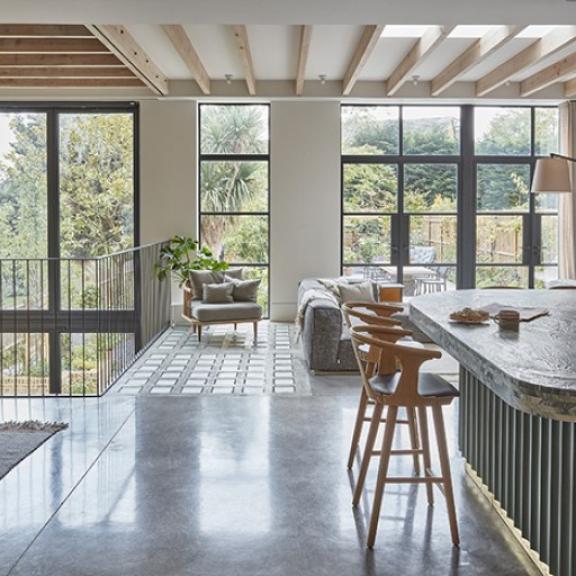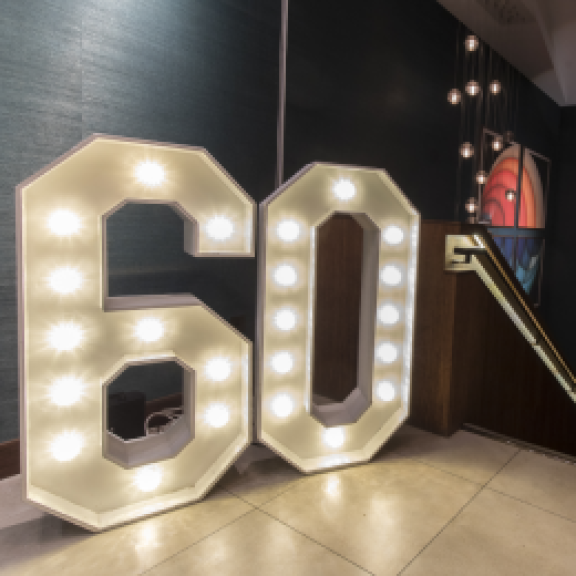BIID Sustainability Strategy 2021-2024 Three Years On
Review of our progress against targets

The BIID published its 2021 to 2024 Sustainability Strategy in April 2021. Since then, the Sustainability Committee has overseen the delivery of that strategy. Here is a summary of progress against objectives achieved in that period. Looking to the future, key sustainability goals have been incorporated into the 2024-2027 BIID Strategic Plan, and the Sustainability Committee, the Council of Directors and the BIID staff team will continue to prioritise sustainability.
BIID Operations
Objective: To have a clear path for the BIID to become a Net Zero carbon emissions organisation
The globally recognised route to become a Net Zero organisation is to reduce carbon emissions that fall into three ‘Scopes’.
- Scope 1 is direct emissions, for example those caused by fuel burned in vehicles owned by a company.
- Scope 2 is indirect emissions that result from the activities of a company, for example those caused by the energy used to power lights in a building used by that company.
- Scope 3 also covers indirect emissions – those that are caused by products or services that are purchased by the company.
Achievements: Following the BIID’s transition to a fully remote organisation in 2021, carbon emissions were significantly reduced, enabling us to achieve Scope 1 and 2. Scope 3 was the next objective, however the challenges of achieving this are extremely complex. Achieving Net Zero is still a key target for the BIID, however we recognise the difficulties of achieving this when Scope 3 status is determined by the carbon activities of 100s of different providers and suppliers. We will continue to publish further updates on our progress in achieving Scope 3.
Objective: To recommend tools and frameworks for members to develop Net Zero carbon emissions plan
Achievements: We have published several news articles and resources to inform members on how to develop Net Zero carbon emission plans. In addition we launched a Sustainability Helpline offering free advice for members. In 2021 the BIID published its Sustainable Specifying Guide, an essential tool to help designers to source and specify sustainably and to ensure they ask the right questions when approaching clients and suppliers for a project. This is a document which will be regularly reviewed to ensure its relevance and accuracy in an ever-changing industry.
Clients & Specifying
Objective: To ensure awareness among members of the importance of responsible sourcing
Achievements: We have published various news articles and resources related to responsible sourcing and supplying, both publicly available and member exclusive. The resources also cover other areas related to sustainable, ethical, and inclusive design such as child and slave labour and the positive and negative environmental and social impacts of the use of wood in design.
Objective: To provide members with tools to make responsible sourcing easier
Achievements: The Sustainable Specifying Guide and Sustainability Helpline are both key tools to assist members in making responsible sourcing more achievable. The launch of the BIID Interior Design Awards in 2022 included the Anna Whitehead Prize which recognises the project with the strongest sustainability credentials and provides a case study in responsible sourcing.

Industry & Community
Objective: To encourage suppliers to aid responsible sourcing for interior designers
Achievements: In the past three years, the BIID has acquired a significant number of Industry Partners and CPD Providers who have sustainability at the heart of their companies and practices. The BIID CPD Providers Directory currently lists 30 CPDs that all focus on sustainability as a key element of their learning objectives. The increasing introduction of resources on how to source and specify sustainably has not only encouraged members to ask the right questions of suppliers but has also attracted suppliers to work with the BIID as a result of their shared passion for sustainable practices.
Objective: To advocate for sustainable options at standard not premium prices
Achievements: The BIID has produced content on this in the Sustainable Specifying Guide to support members in advocating for sustainable options at standard prices, helping to achieve a wider approach to sustainable home design by designers and clients alike. Significant issues remain within certain industries, for example mattresses, whereby the more economically viable options are mostly the less environmentally friendly and / or safe for human use.
Objective: To contribute to the wider community and consider systems and infrastructure both now and in the future
Achievements: The BIID has signed the Construction Industry Council (CIC)’s Professional Institutes’ Climate Action Plan to collaborate with the CIC on various sustainability objectives that can be achieved across the organisations. We have also investigated initiatives to reduce the amount of waste produced in the industry and to educate members and the wider industry on their carbon footprint.
Climate & Biodiversity
Objective: To understand the negative and positive impact design can have on the climate and biodiversity
Achievements: The Sustainable Specifying Guide and the BIID website resources address the impact of the interior design industry on biodiversity. This is particularly the case when discussing sources of wood for the industry which have a huge impact on wildlife and natural habitats.
Objective: To reverse any negative impact of the industry on the climate and biodiversity
To build on the information the resources have provided to members, we will look to build on our collaboration with biodiversity-specific charities and organisations.
For more sustainability resources, head to our brand new resources page.
Explore new resources from the BIID. Seeing a padlock? Just login or become a member to view.
With the launch of the new residential category for this year's awards, get inspired by these award-winning homes
Explore new resources from the BIID. Seeing a padlock? Just login or become a member to view.
BIID has welcomed a range of new members and Industry Partners over the last three months
Explore new resources from the BIID. Seeing a padlock? Just login or become a member to view.
View the highlights from our 60th anniversary party





